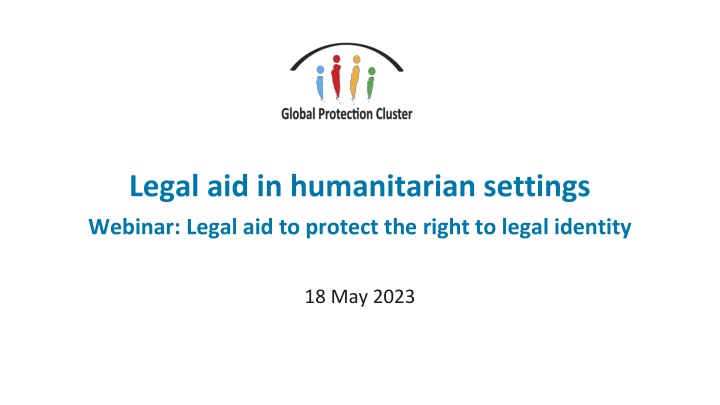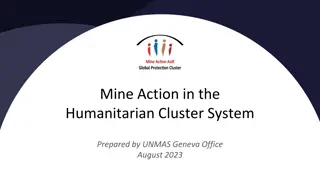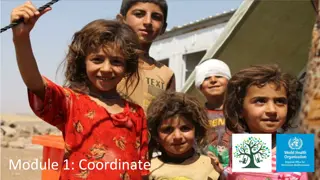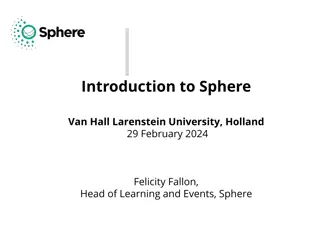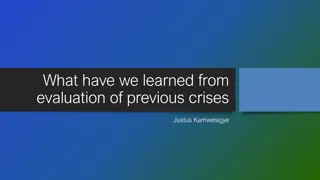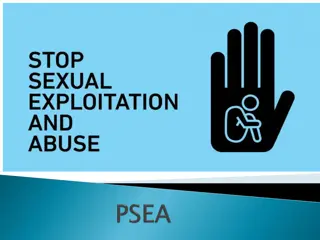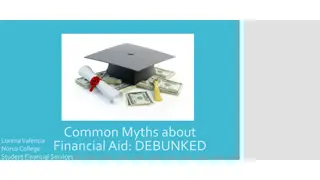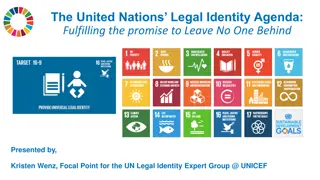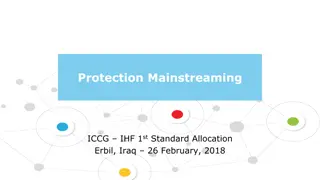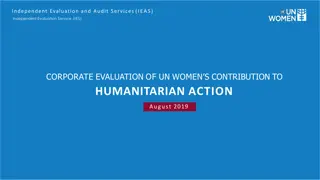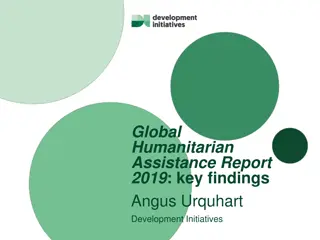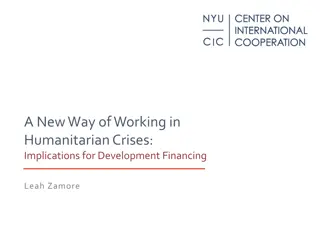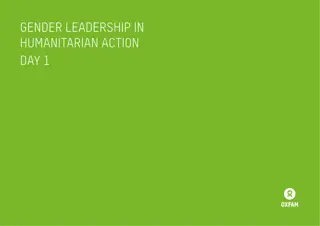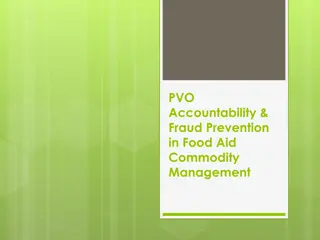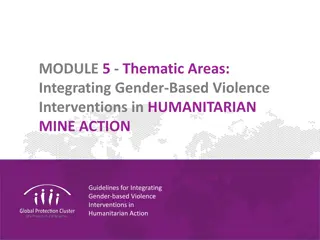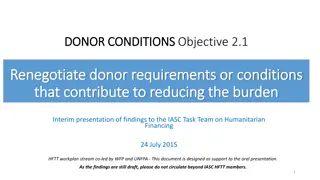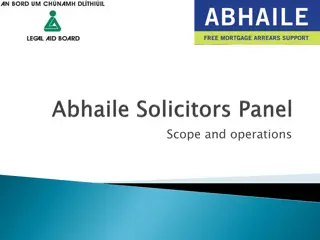Legal Aid to Protect the Right to Legal Identity in Humanitarian Settings
Explore the importance of legal aid in safeguarding legal identity rights for displaced populations through case studies and discussions in humanitarian contexts. Learn about coordination efforts, partnerships with national actors, and good practices in legal documentation programs, such as the UNHCR's Legal Assistance Program in Syria.
Download Presentation

Please find below an Image/Link to download the presentation.
The content on the website is provided AS IS for your information and personal use only. It may not be sold, licensed, or shared on other websites without obtaining consent from the author.If you encounter any issues during the download, it is possible that the publisher has removed the file from their server.
You are allowed to download the files provided on this website for personal or commercial use, subject to the condition that they are used lawfully. All files are the property of their respective owners.
The content on the website is provided AS IS for your information and personal use only. It may not be sold, licensed, or shared on other websites without obtaining consent from the author.
E N D
Presentation Transcript
Legal aid in humanitarian settings Webinar: Legal aid to protect the right to legal identity 18 May 2023
Legal aid to protect the right to legal identity Time Topic 10:30 Introduction, GPC TTLP Martina Caterina and Paola Barsanti 10:40 Case Study 1 Myanmar UNHCR, Eliza Stephanie Stephen, Protection Officer and Mariya Voloshkevich, Statelessness Officer UNDP, Jos Arraiza, Housing, Land and Property Advisor ILF, Shikha Pandey, Program Director Asia 11:00 Case study 2 Syria UNDP, Hala Rizk, Programme specialist Local Governance and Social basic services UNHCR, Gabriele Olivi, Senior Legal Officer NRC, Laura Cunial, Syria Crisis ICLA (legal aid) Adviser 11:20 Discussion 12:20 Closing remarks, Martina Caterina, Coordinator GPC TTLP
Good Practices and lessons learnt on: Coordination: How have humanitarian, development, human rights and peace actors coordinated their efforts to design and implement more effective, collaborative and joint legal aid interventions aimed at securing legal identity of displaced population in humanitarian settings? Partnership with national actors: How have protection actors enhanced the sustainability of their legal aid and access to justice interventions related to legal identity credentials through partnership with national legal aid actors (civil society, private sector, Bar Association, etc..) Hard to reach: Were legal aid interventions able to address and respond to the needs of hard-to-reach population in relation to their legal and civil documentation? How?
Good practices Legal documentation Syria Legal Assistance Program: in 2022 346,896 IDPs and Returnees benefited from UNHCR s Legal Aid Program mainly on issues related to registering civil events, obtaining IDs and family booklets 19,838 individuals obtained personal ID cards, 6,143 individuals received family booklets, 5,495 individuals (mainly women) documented their marriages and obtained marriage certificates and 3,918 children were officially registered and obtained birth certificates. Capacity building projects in 2022: resulted in issuing documents for about 1,793,607 Syrian citizens Civil Registry mobile unit was established by UNHCR in 2022 in coordination with MoI currently deployed in hard- to- reach location. Advocacy for legal reforms and developments: LD 24/2022 which resulted in 207,491 PoCs benefited from the amnesty by registering their delayed events during the grace period without paying fines One Syria Civil Registry Office documentation can be issued in every Civil Registry in the Country regardless of residence
Challenges Legal documentation Syria Needs much larger than Legal Aid capacity (especially after EQ) in 2018, the legal aid providers were banned and only the two mentioned national partners were permitted to resume the legal program; In 2019 until today UNHCR is closely advocating and coordinating with MoFA, partners and other counterparts to expand the pool of legal service providers. Donors Red Line for Institutional Support Limited access to certain area of the country and unclear legal system applicable under no governmental control area (such as NES)
VOICES of People we Serve "I thought that civil documents and citizenship cards are not applicable or relevant to us and it was only for the Tine Yin Thar (the 135 ethnic groups officially recognized by the State according to the 1982 Citizenship Law) but I just learned that it is also applicable and relevant to us (after receiving the awareness session). a Rohingya woman We are afraid to visit government offices or other government facilities, including hospitals, due to existing discrimination practices that we have faced for several decades, but when accompanied by paralegals/attorneys to visit the immigration office we felt safe and comfortable. Also, no one mocked or abused us, and there was no need to wait for hours standing in front of the office without receiving any reason from the immigration staff. We noticed some differences before and when we were accompanied by paralegals. Rohingya and Kaman citizenship applicants
